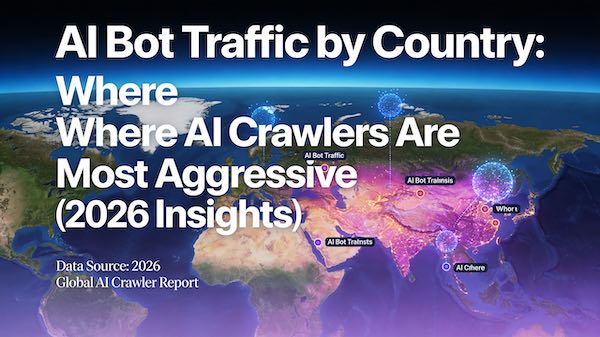![How Accurate is the Google Search Console? [4 Myths 🔮]](https://cdn.prod.website-files.com/63cbb5eef3a2aca7d2e45315/6676caeefe0ba8b9a9e68821_is-google-search-console-accurate-cover.png)
Why is it important, you ask? Because it comes from the house of Google itself! They have a direct line to how Google views your site. This alone makes GSC an invaluable tool in every SEO expert's tool set.
So, let’s unmask the answer to the question “Is Google Search Console Accurate?”.
What Data Does Google Search Console Provide About My Website?

Google Search Console is like a treasure chest of data-related riches, brimming with insights on your website’s performance.
The information is presented in user-friendly, easily digested formats that make it simple for you to act on.
Here’s a look at the key data that GSC provides:
🔎 Performance Reports: From the number of clicks and impressions to CTR (click-through-rate) and average position data, the performance report has it all. You can filter this data by query, page, country, and device to understand how your site performs in different scenarios.
🔎 Keyword Data: Search Analytics report gives you a rundown on the keywords leading users to your website, alongside important details such as ranking, impressions, CTR, and position. GSC even shows you data for long-tail keywords, a realm often overlooked in keyword research.
🔎 Link Building Statistics: The 'Links' section of GSC provides useful data on internal links and external links to your site, the most linked content, and the top referring domains. Learning about the profile of websites linking back to you, can help improve your SEO efforts.
🔎 Technical SEO Insights: Its crawling and indexing reports can aid you in understanding how Googlebot is interacting with your site. From issues related to Core Web Vitals, Security, and HTTPS to coverage errors and enhancements, GSC will flag it all.
🌟 See also: How to Find & Fix Broken Links in Google Search Console
How Does Google’s Algorithm Updates Impact GSC Data?

Whenever Google rolls out an algorithm update, it sends something like a seismic wave in the SEO world. Depending on the nature of the update, you may see significant shifts in various metrics.
Changes in ranking positions, fluctuations in organic clicks, impressions, or CTRs — these can all be consequences of an algorithm update.
It's essential to interpret these shifts with insight and without panic. Here's how you can adapt to algorithm updates using GSC:
📌 Monitor Performance Reports: Performance reports are your first line of defense. These reports give you insight into what has changed and where, allowing you to identify if an algorithm update is affecting your site.
📌 Analyze Keyword Rankings: Following an algorithm update, your site's ranking may shuffle around. If certain keywords perform poorly or better than before, adjust your SEO strategy accordingly.
📌 Investigate Index Coverage Issues: The 'Index Coverage Status report' in GSC can give valuable insights if Google has issues crawling or indexing your website. Algorithm updates can sometimes affect these reports. So, always keep a close eye on them after an update!
📌 Review AMP and Mobile Usability Reports: Following mobile-related updates, review these reports in GSC to ensure your website adheres to new mobile guidelines.
Algorithm updates are a normal part of SEO life. They aren’t anomalies, rather an indication, a signal to adapt and optimize.
🌟 See also: How to Fix 'Crawled-Currently Not Indexed' Issue in GSC
4 Myths About Google Search Console
Now that we have unlocked the treasure chest that is GSC and peered inside, we can see that the tools we find therein are quite powerful.
But how accurate are they? After all, having powerful tools means nothing if they can’t be trusted.
Clearing away the common misconceptions about GSC will provide you with a clearer understanding of its accuracy and reliability, and help you maximize your SEO effectiveness armed with the correct knowledge.
Let's challenge the GSC myths head-on and get our facts straight:
Myth 1. GSC Data is Often Wrong
This is perhaps the most common, and the most damaging, misconception. Many believe that the data provided by GSC is often wrong and differs from the data from other analytics tools.
Here's the fact beam busting this myth cloud: GSC is not 'wrong'; it's just 'different'.
GSC and other analytics platforms measure different things using different parameters. Be it the definition of metrics, the data collection methods, or privacy settings, there are numerous factors contributing to the differences.
So it's not a matter of being 'right' or 'wrong'. It's about understanding the unique data and insights each tool offers and using them collectively to move your SEO performance needle.
Myth 2. ‘Average Position’ Data is Misleading

Another common myth floating around is about the 'Average Position' metric in GSC. Critics claim it to be a misleading figure, providing an unrealistically optimistic portrayal of a site's performance.
But here's the real deal: The 'Average Position' number is precisely that — 'an average'. And it's not just about your ranking for a particular keyword; it's about your site's overall position for all search queries it appeared for.
Therefore, the average can skew due to a myriad of reasons like geographical variations, device type, and personalized search settings.
How do you combat this? Simple. Don't solely rely on this one metric. Use it in tandem with other performance indicators like 'Clicks', 'Impressions', and 'CTR' to get a holistic and realistic view of your website performance.
Myth 3. GSC Doesn’t Provide Real-Time Data
This myth manifests from the fact that some GSC reports, such as the Performance Report, show a delay of a few days. While it might feel like you're always running behind line, it's not a fundamental issue.
The slight delay in data reporting is due to the meticulous review and validation of the data by Google to provide the accurate and valuable insight you need. And let's not forget, there are parts of GSC, like the Index Coverage and URL Inspection tool, providing near real-time data!
So, before you write off GSC for the seemingly late data, remember to look at the big picture and the value it brings!
Myth 4. The Reported Rankings are False
Many have the mistaken belief that the ranking you see in your personal search result is the same as in GSC. This is a mythical maze many get entangled in.
Due to numerous factors at play, including personalization, location, device used, among others, the ranking observed in a personal SERP can vary widely from the average position ranking reported by GSC.
Don't fall prey to this myth. GSC provides aggregate data on your ranking, keeping Google's broad perspective in mind, and that’s what makes it a valuable tool.
🔮 Unmasking the Truth
And there we have it - four prevalent myths about Google Search Console, debunked! There’s one more lesson to learn from this – a tool is as good as the user.
In capable hands, GSC is an incredible goldmine of insights, capable of propelling your SEO efforts to new heights.
The more you understand Google Search Console, its metrics, its strengths, and its limitations, the better equipped you become to harness its power.
Why Should You Enhance GSC Data with Third-Party Tools?
The data within Google Search Console is considered first-party data since this data comes directly from Google's servers. Therefore GSC is a powerhouse of insightful data.
However, GSC has its limitations. Certain areas are out of its purview, like competitor analysis, social media metrics, or real-time data tracking. GSC’s data might also feel overwhelming, too raw, or too technical to some users.
That’s where third-party tools come into play. Third-party tools augment GSC’s data, present it in more accessible formats, and fill in the gaps that GSC might leave, forming an ensemble that decodes the cryptic code of your site's performance.
For instance, you can easily use SEOmator’s Free Google SERP Rank Checker to check your website's ranking for specific keywords in real time.

Moreover, you can use tools like SEMrush for more in-depth keyword analysis, Moz for competitor analysis to gain valuable insights, Ahrefs for more advanced backlink analysis and SEOmator audit tool to carry out site audits that provide insights that GSC may not offer.
Conclusion
Google Search Console is a free tool by Google that offers you a wealth of information and functionality to improve your website's presence in search results.
It provides insights into how well your site is performing in search for specific keywords, and helps you identify technical issues that might be affecting your website's crawling and indexing by Google among other benefits.
However, some might question the accuracy of Google Search Console. In our guide, we explored those misconceptions and debunked them.
Rest assured, with Google Search Console as your trusted ally, and armed with the knowledge of deciphering performance reports, you can sail smoothly through the challenging waters of SEO!
🌟 Related Articles:
- Google VS Bing: Comparison of Two Big Search Engines
- How Often Does Google Crawl a Site? -Factors & Ways to Learn





